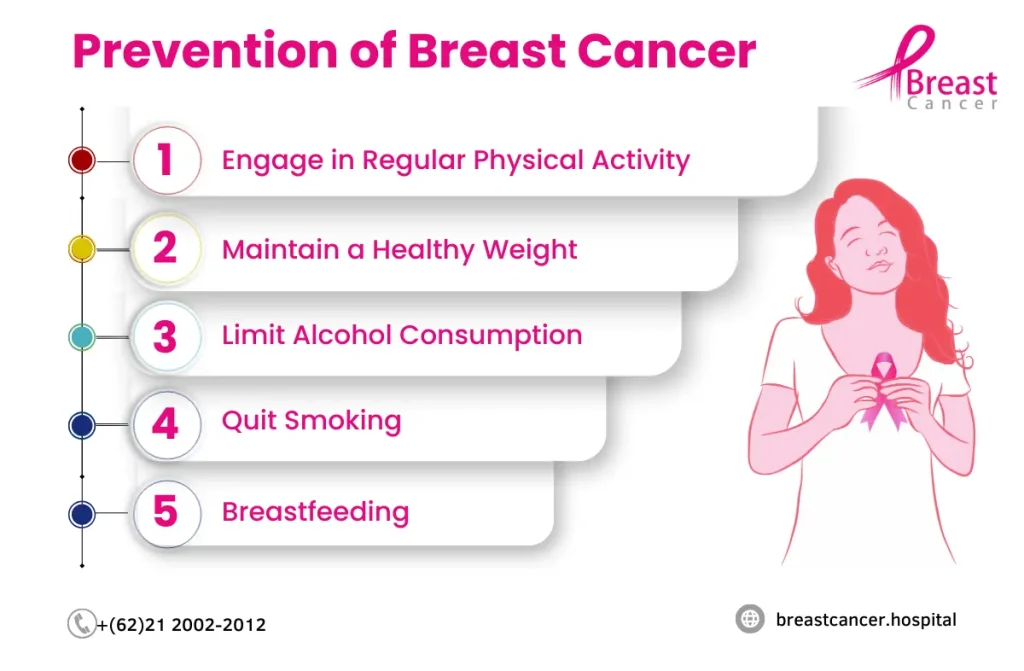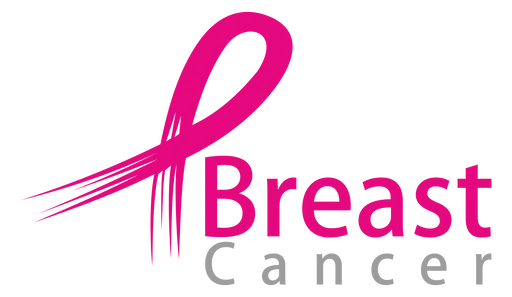Breast cancer stands as a prevalent health concern affecting women globally, underscoring the importance of understanding its risk factors and preventive strategies, as detailed in Breast Cancer Risk Factors and Prevention. Within this comprehensive guide, we aim to delve deeply into the pivotal factors that contribute to the risk of breast cancer. Additionally, we’ll explore effective measures for prevention, empowering individuals on their health journey to proactively manage their well-being.

Breast Cancer Risk Factors and Prevention
Breast cancer is a complex disease influenced by various risk factors. Understanding these factors is crucial for early detection and prevention. Explore the key contributors to breast cancer risk:
Genetic Factors and Family History
- Genetic mutations like BRCA1 and BRCA2 significantly increase the risk of breast cancer.
- Family history of the disease, especially in close relatives, can elevate one’s susceptibility to developing breast cancer.
- Genetic counseling and testing, as emphasized in Breast Cancer Risk Factors And Prevention, serve as invaluable tools for individuals seeking a deeper understanding of their genetic predisposition to breast cancer. These sessions enable individuals to gain comprehensive insights into their genetic profile, empowering them to make informed decisions regarding suitable preventive measures or potential treatment options based on their personalized risk assessment.
Hormonal Influences and Reproductive Factors
- Extended exposure to estrogen without intervals, as highlighted in Breast Cancer Risk Factors and Prevention, poses a heightened risk factor for breast cancer. Instances like early onset of menstruation or late menopause, contributing to prolonged estrogen exposure, have been associated with an increased susceptibility to developing breast cancer.
- Delayed childbirth or having the first child after the age of 30 might contribute to increased vulnerability.
- Hormone replacement therapy (HRT) and certain oral contraceptives can also impact breast cancer risk.
Lifestyle and Environmental Factors
- Sedentary lifestyles, excessive alcohol consumption, and a diet high in processed foods and saturated fats may elevate the risk.
- Environmental factors like exposure to radiation or certain chemicals may play a role in increasing susceptibility to breast cancer.
- Regular exercise, maintaining a healthy weight, and adopting a balanced diet can mitigate these risks.
Early Detection and Treatment
- Improved Treatment Success: Detecting breast cancer in its early stages often means a more favorable prognosis. When the cancer is small and localized, treatment options tend to be more effective, and the chances of successful treatment and recovery are higher.
- Less Invasive Treatment: In the context of Breast Cancer Risk Factors and Prevention, it’s important to note that early-stage breast cancer often necessitates less aggressive treatment approaches. These may encompass interventions such as lumpectomy, targeting the removal of the tumor rather than resorting to mastectomy, which involves complete removal of the breast. Furthermore, less aggressive treatment modalities like targeted therapies or hormone therapy might suffice for managing and treating early-stage breast cancer, providing a more tailored and focused approach to treatment.
- Reduced Risk of Spread: Early detection of breast cancer is crucial in preventing its spread and minimizing the need for extensive treatments. Regular screenings and awareness are key components of early detection. Understanding breast cancer risk factors and prevention allows for proactive measures, and enhancing prevention strategies. If concerned about breast cancer risk, consult with healthcare professionals for personalized assessments and guidance.
- Enhanced Quality of Life: Early detection allows individuals to maintain a better quality of life during treatment. It minimizes the physical and emotional impact of more aggressive treatments and reduces the risk of complications.
- Regular Monitoring and Follow-up: Even after successful treatment, regular follow-ups and monitoring are crucial to detect any potential recurrence or new developments early. This ongoing vigilance ensures timely intervention if needed.
Risk Factors to Consider for Breast Cancer
- Reproductive History: Women without children or those having their first child after 30 may face a slightly higher breast cancer risk due to prolonged estrogen exposure. Discussing reproductive history with a doctor is essential for personalized screening and prevention plans.
- Early Menstruation/Late Menopause: Starting menstruation before age 12 or experiencing late menopause after 55 increases breast cancer risk. Conversations with a doctor about menstrual history are crucial when exploring screening options.
- No History of Breastfeeding: Breastfeeding for a year or longer may reduce breast cancer risk. Discussing breastfeeding options with healthcare providers aligns with comprehensive preventive measures.
- Hormone Intake: Certain birth control methods using hormones, such as oral contraceptives or postmenopausal hormone therapy, can increase breast cancer risk. Evaluating risks and benefits with a doctor aids informed decisions on contraception and hormone replacement therapy.
Understanding these risk factors empowers individuals to make informed choices regarding breast cancer prevention and screening.
Strategies for Breast Cancer Prevention
Breast Cancer Risk Factors and Prevention Strategies go hand in hand.
- Know Your Risk Profile: Understanding your family history and genetic predisposition are paramount, especially concerning breast cancer risk factors and treatment. If you have a family history of breast cancer, considering genetic counseling and testing becomes crucial. These measures offer valuable insights into your genetic profile, aiding in a comprehensive understanding of your risk factors and guiding informed decisions regarding treatment or preventive strategies.
- Healthy Lifestyle Choices: Maintain a healthy weight, engage in regular physical activity, limit alcohol intake, and follow a balanced diet rich in fruits, vegetables, and whole grains.
- Regular Screenings: Stay vigilant with routine mammograms and clinical breast exams. Perform monthly breast self-exams to detect any changes or abnormalities early.
- Avoiding Hormone Replacement Therapy: Discuss alternatives to hormone replacement therapy with your healthcare provider if needed, considering its impact on breast cancer risk.
Breast cancer risk factors and treatment are deeply intertwined, emphasizing the significance of preventive measures in reducing vulnerability to this disease.
Conclusion
Understanding breast cancer risk factors and taking proactive steps towards prevention, as highlighted in Breast Cancer Risk Factors and Prevention, are foundational in upholding women’s health. Being cognizant of the factors contributing to breast cancer and actively adopting preventive measures empowers individuals to markedly decrease their likelihood of developing this condition. Let’s persist in raising awareness and fostering a supportive environment that prioritizes health and well-being for all.
Also, Read Best Breast Cancer Hospital in Chennai.





